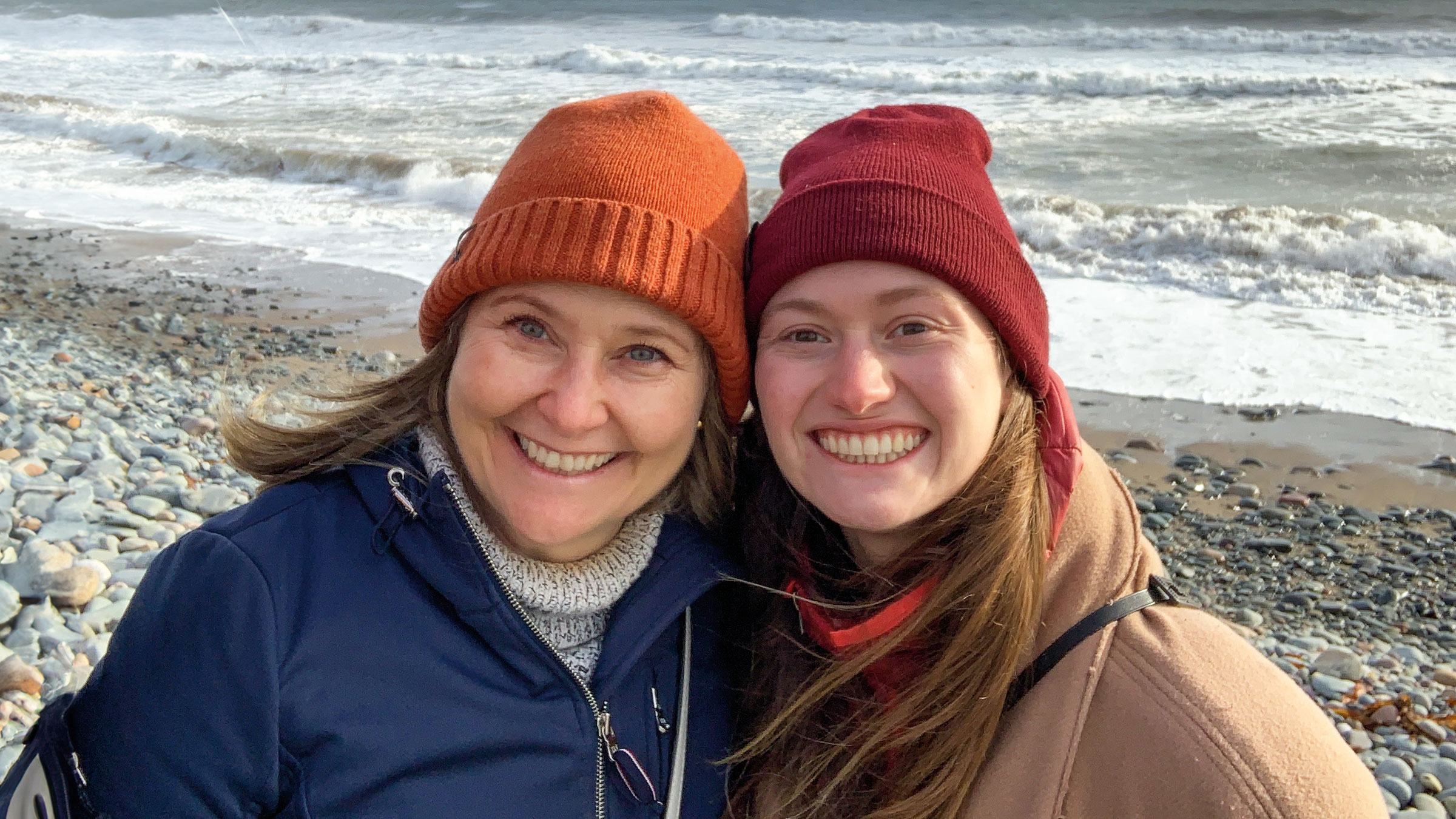In 2022, my mum, Michelle, was diagnosed with ALS (amyotrophic lateral sclerosis). Her diagnosis was scary and sudden. With no cure, no truly effective treatments, and an average life expectancy of just three to four years, ALS is a fatal motor neuron disease that severs the brain’s connection to the body. We were told that Mum would gradually lose the ability to walk, speak, eat, and breathe, all while remaining fully mentally aware.
“I’m not angry at my body anymore,” Mum said one night while we were driving, a few months after her diagnosis. The streetlights lit up the side of her face as we passed underneath them. She was smiling. “I may not be around as long as other people, but I’ve loved my life.”
I gripped the steering wheel, at a loss for what to say. I was very angry at her body. At fifty-five, she wasn’t supposed to be dying. She was supposed to be here for a long time—decades.
“Forgiving our bodies — for dying, for aging, for becoming sick — can feel impossible, even radical, but it’s essential”
But despite my protests, her body was in fact dying. Over the next year, my family and I stumbled through the process of caring for her as her illness progressed. Mum died peacefully just before Christmas, two years after her diagnosis.
Caring for my mother as she approached the end was incredibly difficult, but it also awakened a fundamental awareness in me: Mum was dying, and so were we, eventually. Maybe not now, maybe not soon, but undeniably and inevitably. Death is always in the room with us—unspoken but palpable, lingering in the air.
In this issue, we reflect on the universal nature of death and ways we can approach it with greater wisdom. As Judy Lief writes in her article “The Tibetan Book of the Dead Isn’t Just About Dying” (page 44), contemplating death is not only vital for preparing for the end of our lives, it’s also key to understanding the everyday reality of impermanence and suffering. “Our lives are marked by constant change and loss, by shifting and overwhelming energies and emotions, and by the desperate search for solid ground,” she observes. Buddhist teachings on confronting the great transition of death can, therefore, offer guidance for navigating the smaller losses and transformations we encounter each day.
Although death is always with us, for most of our lives, we avoid speaking or even thinking about it. It can be uncomfortable and even deeply painful to contemplate, but we all share the truth that to be alive means that we live, we lose, we grieve—again and again.
Forgiving our bodies—for dying, for aging, for becoming sick—can feel impossible, even radical, but it’s essential if we want to fully appreciate the time we have. We can love our lives, even while knowing that one day they will end. Mum came to understand this early on. She held deep compassion for her body, for her life, and, I believe, for all of us who bore witness, and I could not admire her more for that.

